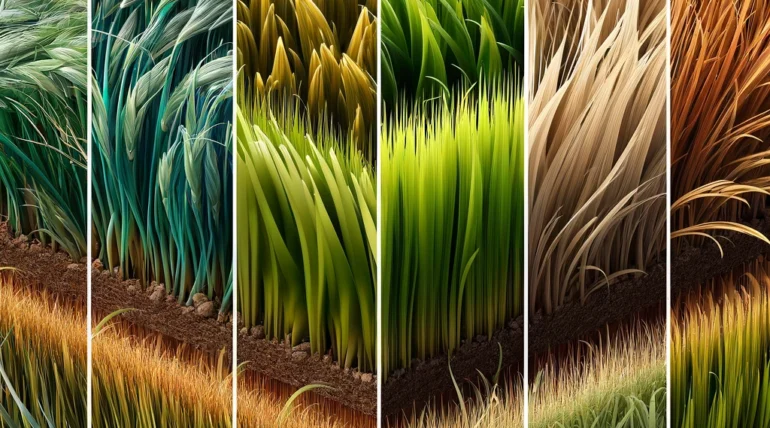
In the face of fluctuating weather patterns and the growing importance of water conservation, selecting the right type of grass for your lawn is more crucial than ever. For homeowners in New Jersey, choosing drought-resistant grasses can be a game-changer, reducing both water usage and maintenance requirements. Here’s a guide to the best drought-resistant grass types for New Jersey lawns, helping you keep your yard lush and green, even during dry spells.
1. Tall Fescue
- Description: Tall fescue is known for its deep root system, which allows it to access water from deeper soil layers. This robust grass type is not only drought-resistant but also tolerates partial shade and poor soil conditions.
- Benefits: Its thick, deep roots help reduce soil erosion and improve drought resistance, making it an excellent choice for New Jersey homeowners looking for low-maintenance lawns.
2. Fine Fescue
- Description: This group of grasses, including creeping red fescue, hard fescue, and sheep fescue, is well-suited for areas with poor soil fertility and low water availability.
- Benefits: Fine fescue requires little fertilization and mowing, making it ideal for naturalized areas on your property where you prefer a more ‘wild’ look.
3. Kentucky Bluegrass
- Description: While typically a moderate water consumer, certain cultivars of Kentucky bluegrass have been developed to be more drought-tolerant.
- Benefits: These cultivars can go dormant during extreme drought and recover quickly when watered again, offering a practical solution for maintaining an attractive lawn during varying weather conditions.
4. Bermuda Grass
- Description: This grass is incredibly heat and drought-tolerant, making it a popular choice in the warmer parts of New Jersey. Bermuda grass grows quickly and establishes itself rapidly.
- Benefits: It creates a dense, low-growing turf that resists traffic and reduces water loss from the soil, making it ideal for active recreational areas.
5. Zoysia Grass
- Description: Zoysia is a slow-growing grass but forms a thick, carpet-like lawn once established. It is very drought-tolerant and can withstand high temperatures.
- Benefits: Zoysia requires infrequent mowing, minimal fertilization, and can outcompete weeds, all of which contribute to reduced lawn maintenance efforts.
Water Conservation Tips
- Irrigation: When watering is necessary, do it early in the morning to minimize evaporation losses. Use a soaker hose or drip irrigation to target water directly to the roots where it’s needed most.
- Mowing: Keep your grass at a higher mowing height to promote deeper root growth and enhance drought tolerance.
- Soil Health: Regularly aerating your lawn can improve water penetration and reduce runoff. Adding organic material to your soil can also improve its moisture retention capabilities.
Choosing the right drought-resistant grass for your New Jersey lawn not only conserves water but also ensures that your lawn remains a vibrant, inviting space. By selecting grass types suited to the local climate and your specific soil conditions, you can enjoy a beautiful lawn that’s also environmentally friendly.









